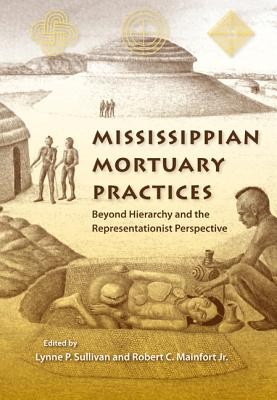
- We will send in 10–14 business days.
- Publisher: University Press of Florida
- ISBN-10: 0813042011
- ISBN-13: 9780813042015
- Format: 15.6 x 23.4 x 1.9 cm, softcover
- Language: English
- SAVE -10% with code: EXTRA
Mississippian Mortuary Practices (e-book) (used book) | bookbook.eu
Reviews
Description
"A richly detailed edited volume that reexamines Mississippian mortuary practices in light of current anthropological and archaeological theoretical perspectives."--C. Cliff Boyd, Radford University
"Shows that instead of reflecting status, mortuary programs actually use the dead to refract, realign, and repurpose the roles and relations of the living."--Alex W. Barker, University of Missouri
The residents of Mississippian towns principally located in the southeastern and midwestern United States from 900 to1500 A.D. made many beautiful objects, which included elaborate and well-crafted copper and shell ornaments, pottery vessels, and stonework. Some of these objects were socially valued goods and often were placed in ritual context, such as graves.
The funerary context of these artifacts has sparked considerable study and debate among archaeologists, raising questions about the place in society of the individuals interred with such items, as well as the nature of the societies in which these people lived. By focusing on how mortuary practices serve as symbols of beliefs and values for the living, the contributors to Mississippian Mortuary Practices explore how burial of the dead reflects and reinforces the cosmology of specific cultures, the status of living participants in the burial ceremony, ongoing kin relationships, and other aspects of social organization.EXTRA 10 % discount with code: EXTRA
The promotion ends in 17d.20:27:43
The discount code is valid when purchasing from 10 €. Discounts do not stack.
- Publisher: University Press of Florida
- ISBN-10: 0813042011
- ISBN-13: 9780813042015
- Format: 15.6 x 23.4 x 1.9 cm, softcover
- Language: English English
"A richly detailed edited volume that reexamines Mississippian mortuary practices in light of current anthropological and archaeological theoretical perspectives."--C. Cliff Boyd, Radford University
"Shows that instead of reflecting status, mortuary programs actually use the dead to refract, realign, and repurpose the roles and relations of the living."--Alex W. Barker, University of Missouri
The residents of Mississippian towns principally located in the southeastern and midwestern United States from 900 to1500 A.D. made many beautiful objects, which included elaborate and well-crafted copper and shell ornaments, pottery vessels, and stonework. Some of these objects were socially valued goods and often were placed in ritual context, such as graves.
The funerary context of these artifacts has sparked considerable study and debate among archaeologists, raising questions about the place in society of the individuals interred with such items, as well as the nature of the societies in which these people lived. By focusing on how mortuary practices serve as symbols of beliefs and values for the living, the contributors to Mississippian Mortuary Practices explore how burial of the dead reflects and reinforces the cosmology of specific cultures, the status of living participants in the burial ceremony, ongoing kin relationships, and other aspects of social organization.

Reviews